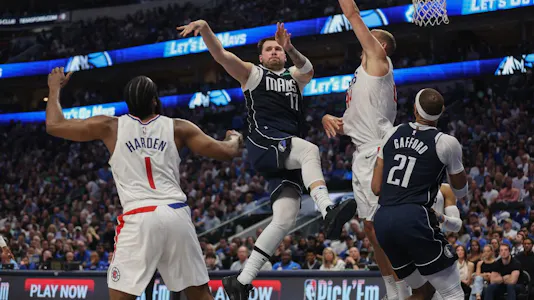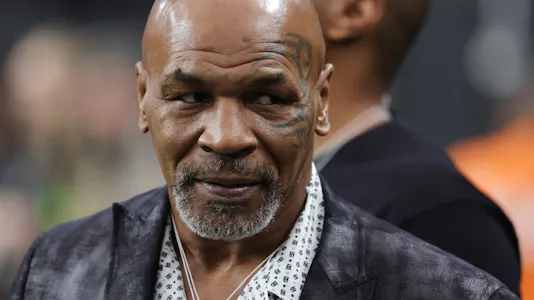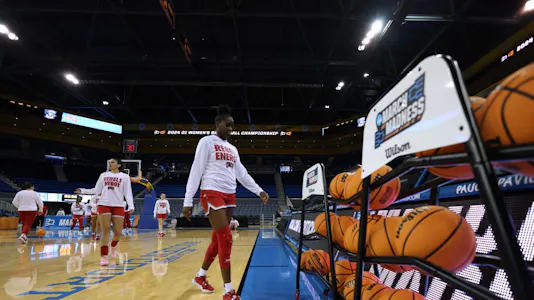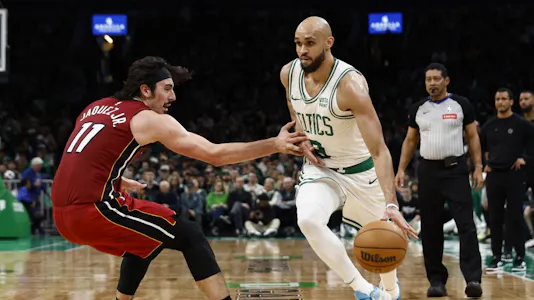Empire State of Disarray: New York Teams Lead the List of Pro Sports Substance Abusers
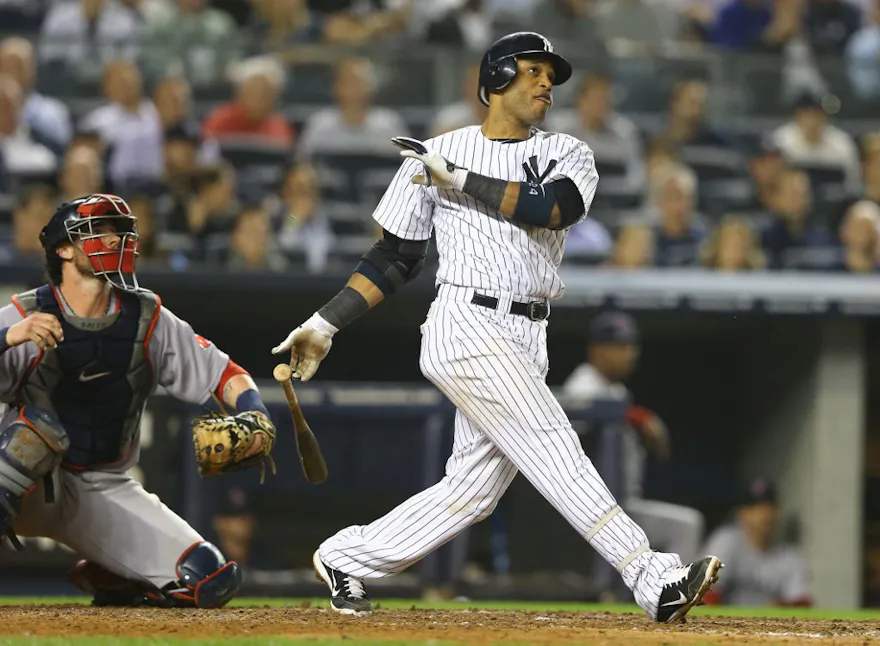
Championships have been in short supply for the city of New York in recent years – but there's at least one sports-related metric in which NYC is well above the competition.
Unfortunately, it's in a category no one wants to lead.
The NFL's New York Giants and Major League Baseball's New York Mets both reign supreme as the teams with the most suspended players and suspension games missed due to drug violations since 2010. The NBA's Knicks have had the most drug-related fines or salary forfeiture of any NBA team over that span, while the Yankees are second only to the Mets in fines and salary forfeiture among all MLB teams over the past 14 years.
Granted, this isn't exactly the chaotic mid-80s or juice-filled late-90s we're talking about, but even with drug ban trends headed in the right direction across the majority of professional sports, it's somewhat disconcerting to see so many suspensions handed out to players from one city.
Here's a more detailed breakdown of drug violation trends since 2010 (suspension data courtesy Spotrac):
NFL
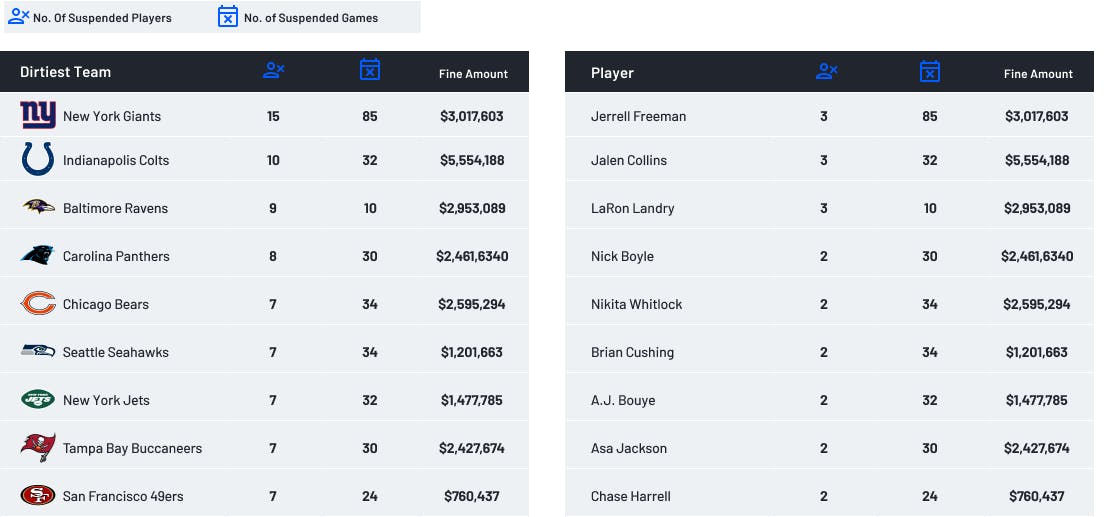
The G-Men are the runaway winners, having lost a whopping 85 man-games due to drug suspensions. That's more than the second- and third-worst offenders combined – and tells you all you need to know about how dire things have been with the Giants in recent history.
The Indianapolis Colts hold down the No. 2 spot as the only other team with double-digit drug infractions, though their 32 games lost is actually only fifth-most overall. Indy has, however, forfeited the second-most cash of any team, behind only the Houston Texans.
The Baltimore Ravens are often referred to as "The Dirty Birds," and they've taken that moniker a little too closely to heart over the years. The Ravens have incurred the third-most player suspensions and lost the second-most games due to drug bans since 2010.
Carolina comes in at No. 4 on the list, with eight drug-related suspensions for 30 total games lost and nearly $2.5 million in monetary penalties. And Chicago leads a group of teams in a tie for fifth with seven violations; among those teams in the mix: The New York Jets. Yeah.
From an individual player perspective, three NFL players have been suspended three times each for substance abuse violations since 2010. Jerrell Freeman, Jalen Collins and LaRon Landry have lost a combined 78 games and nearly $4.5 million in salary for those violations, while 13 other players have been suspended twice for drug infractions.
Players at the two speed positions have been the biggest infractors, with 50 suspensions handed out to cornerbacks (26) and wide receivers (24). Defensive tackles (20) and defensive ends (19) are next on the list, while only two quarterbacks have been slapped with a drug suspension in the past decade-and-a-half.
Current Tennessee Titans wide receiver DeAndre Hopkins has the distinction of losing the most salary due to drug violations in the past 14 years, forfeiting more than $5.3 million for his six-game ban in 2022 as a member of the Arizona Cardinals.
NBA
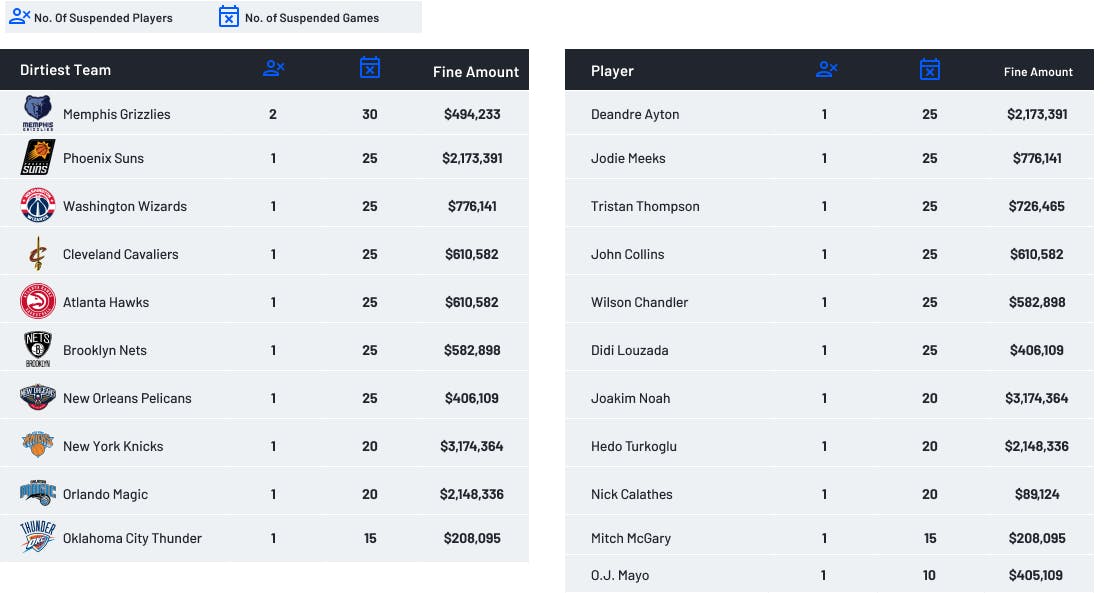
Unlike their gridiron peers, NBA players have been largely obedient when it comes to avoiding banned substances. There has been just two drug suspensions over the past four seasons, and only 11 players have been given a doping ban since the beginning of 2010.
The Memphis Grizzlies are the league's only repeat offender over that stretch, with two drug bans for a combined 30 games (but just $494,233 in fines and lost salary). Phoenix, Washington, Cleveland, Atlanta, Brooklyn and New Orleans have all had one drug suspension each for 25 games, while the Knicks and Orlando Magic (20 games) and Oklahoma City Thunder (15 games) round out the list.
No player has had more than one drug violation over the past 14 seasons, with Joakim Noah ($3.17 million), DeAndre Ayton ($2.17 million) and Hedo Turkoglu ($2.15 million) incurring the steepest financial penalties of anyone on the list.
MLB
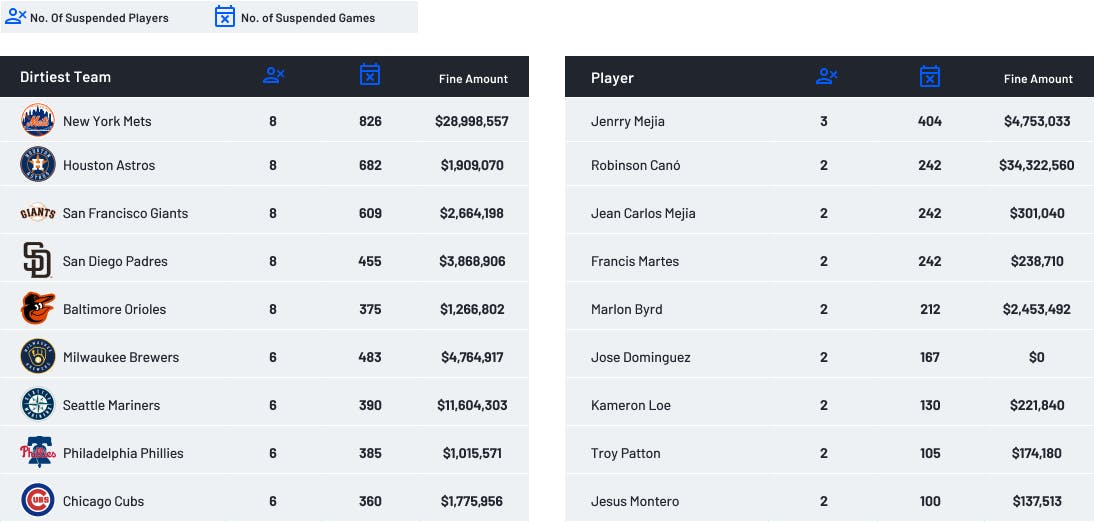
The New York Mets have been hit hardest of any team in Major League baseball when it comes to drug violations and suspensions – and two notable repeat offenders are largely to blame for this.
The Mets have lost a whopping 826 man games to doping bans since 2014, with nearly a full season's worth of games between them and the No. 2 Houston Astros. The two-time World Series champions have also absorbed the most fines and salary forfeitures of any franchise in baseball since 2010, at nearly $29 million lost.
Four other teams (the Astros, San Francisco Giants, San Diego Padres and Baltimore Orioles) join the Mets atop the list with eight drug suspensions, while the Yankees ($25.3 million) join the Mets as the only franchises with more than $12 million in fines and forfeitures.
Jenrry Mejia is the poster child for the Mets' struggles with drug violations. The 34-year-old pitcher was the first player to be banned from MLB for life after being suspended three separate times for substance abuse infractions.
Mejia was reinstated in 2018, but never made it back to the major leagues and now pitches for the Saraperos de Saltillo of the Mexican League.
Robinson Cano has also earned the ire of fans and colleagues with a pair of drug bans – one as a Met, the other as a Yankee – and has the distinction of losing the most money of any player on this list: $34.2 million between two suspensions for a combined 242 games. He, too, is now playing in the Mexican League.
NHL
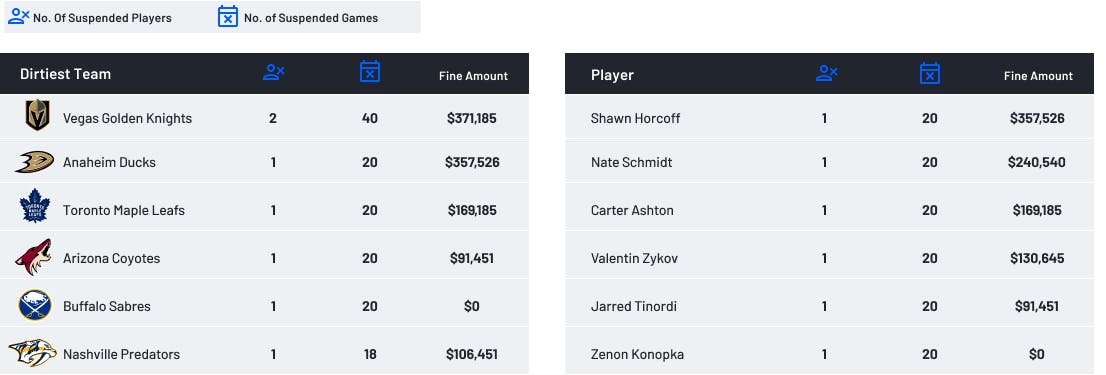
Drug suspensions in the NHL are rare, with only five handed out over the past 14 years.
The defending Stanley Cup-champion Vegas Golden Knights are the only team on the list with multiple offenses, having incurred two 20-game drug suspensions in franchise history. But those came in the 2018-19 (Nate Schmidt) and 2019-20 seasons (Valentin Zykov), and the NHL hasn't had a drug ban since.
Per the league's most recent Collective Bargaining Agreement, players are tested team-wide twice per season: Once during training camp and again at some point during the campaign. Teams aren't given advance notice, but testing isn't done on game days.
Individual players can also be tested without notice at any point during the season, while a max of 60 are subject to random testing in the offseason.


